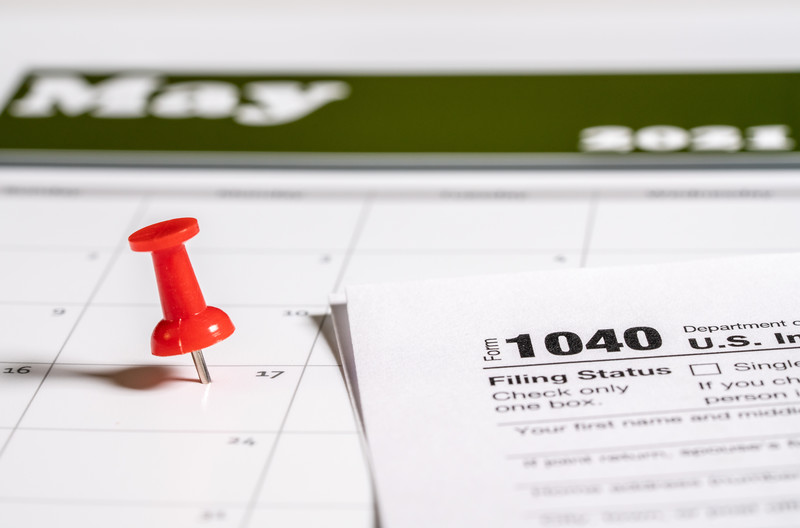This year, the filing deadline has been moved from April 15th to May 17th. Even so, the busiest financial season of the year is upon us, and the deadline to file personal income taxes is just weeks away. With millions of Americans rushing to file a return, it is perhaps not surprising that some people miss the filing date. What happens if May 17th has come and gone, and you’ve missed the deadline?
Before You Are Late
If at all possible, it’s important to try and do what you can to avoid missing the tax filing date. You can schedule an appointment with a tax professional well in advance of the filing deadline – and you’ll need to plan ahead. However, if you’re still waiting on your tax documents or you have other obstacles that will prevent you from hitting the deadline, there is one thing that you can do in advance to avoid being penalized.
If you know that you will not be able to file your return by the tax filing deadline, you can request an extension to file before May 17th. This way, you’ll avoid IRS penalties for not filing and will receive a six-month extension to submit your return. If you owe taxes, remember that an extension to file does not grant you an extension to pay. If you request an extension without paying the full amount of taxes due by your new due date, you’ll receive a late filing penalty. However, late filing penalties and interest on a small portion of your tax bill are still preferable to failure-to-file penalties.
When You Miss the Filing Deadline
If you are owed a tax refund by the government and miss the filing deadline, there is no penalty. The government will continue to hold your refund for up to three years or until you file your taxes. However, certain tax credits may expire, especially those that exist to help you pay your insurance, so filing your tax documents ASAP is ideal to ensure you receive your credits.
If you owe taxes and miss the May 17th deadline, you may no longer file an extension. Instead, you’ll receive a failure to file penalty as well as a failure to pay penalty that amounts to 5% (4.5% in late filing and .5% in late payment) of your taxes owed. The IRS will assess this penalty once for each month your tax filing and payment are late, up to 25% of your total tax bill. Failure to file penalties max out at five months past the filing date ($435 or 100% of the unpaid tax, whichever is smaller). However, you’ll continue to accrue charges for failure to pay, up to 22.5%. In total, you’ll owe an additional 47.5% of your tax bill if you don’t file within five months.
What Should You Do if You Miss the Tax Deadline?
If you miss the tax deadline for reasons like military combat deployment, overseas duty, civilian support personnel in combat zones, or you are a disaster victim, you may be able to request a penalty waiver from the IRS to avoid paying penalties. Similarly, if you have a three-year history of paying your taxes on time, you may qualify for a first-time penalty abatement. However, you’ll still need to pay interest. If these situations apply to you, contact the IRS via the phone number on your penalty and interest notice, or visit the IRS administrative penalty relief page.
Regardless of the reason you missed the deadline, it is important to file your taxes as soon as possible and to pay as much of your tax bill as you can. The IRS provides a variety of payment options, and doing so will reduce your interest owed and minimize additional penalties. Schedule an appointment with a tax professional at Western Shamrock to ensure you have considered all circumstances surrounding your situation and meet all necessary deadlines to avoid further penalties and interest.
Resources:
https://www.fool.com/taxes/2021/02/18/what-happens-if-i-miss-the-tax-filing-deadline-thi/
https://www.irs.gov/forms-pubs/extension-of-time-to-file-your-tax-return








